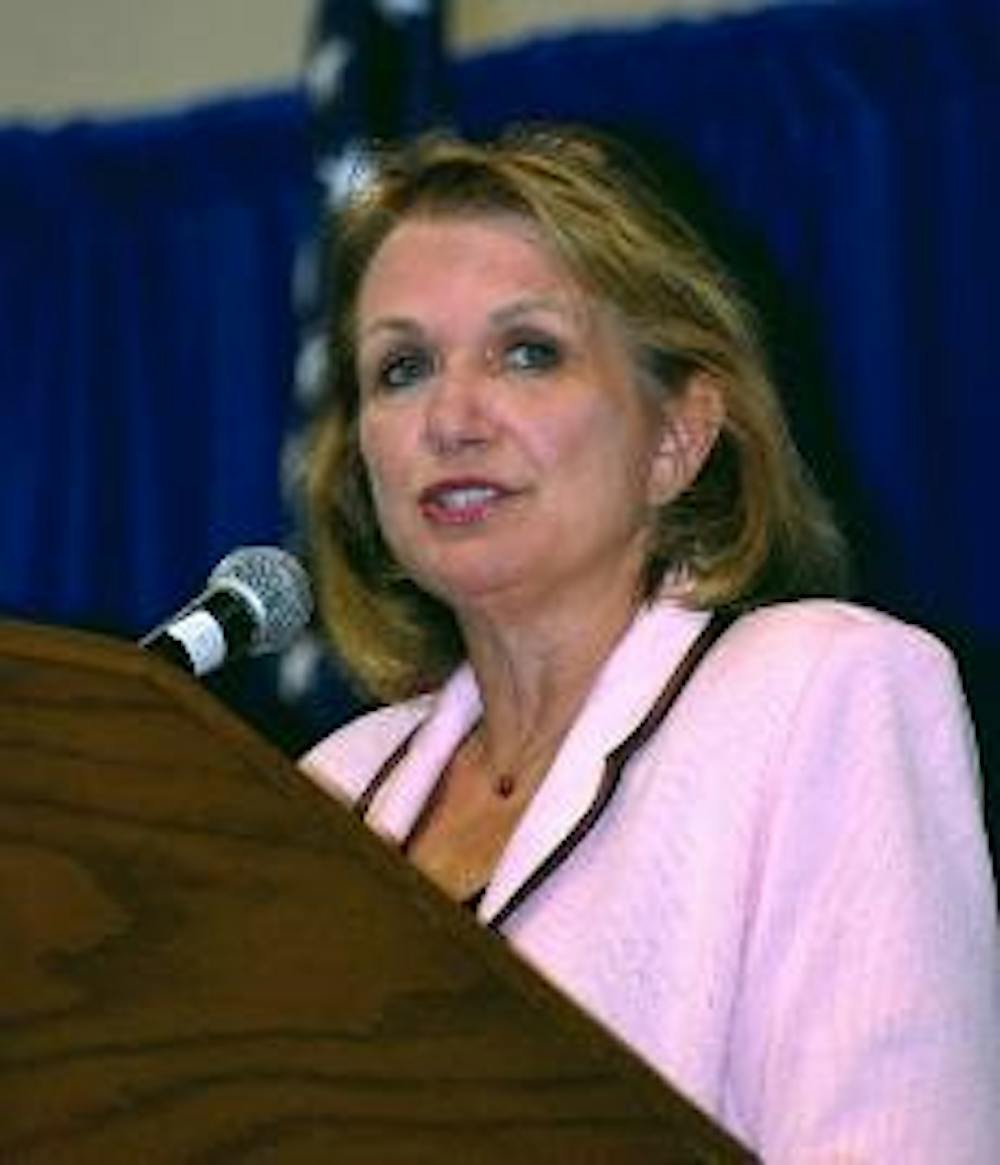Correction appended
Cancer affects many Americans: 50 percent of men and one in three women will at one point have some form of cancer, said Elizabeth Edwards, presidential candidate John Edwards' wife, at the closing event of the Breastival Tuesday.
"Cancer is an equal-opportunity disease," Edwards said to a crowd of a few hundred students.
Edwards revealed to the public that she had breast cancer on Nov. 3, 2004, the same day that Democratic Sen. John Kerry and her husband, a former senator for North Carolina, conceded the presidential election to President Bush.
Edwards said she was happy she went public with her battle and pointed out one specific woman who went for a mammogram after hearing of Edwards' cancer, she said. That woman had breast cancer, she said.
"That made the public announcement and everything else I have done since worth it," she said.
Cancer patients cannot let the cancer define them, she said.
"We have the power about whether or not cancer defines us," she said.
Edwards discussed the journey she has gone on since being diagnosed. She said when that journey is taken alone, it is frightening, but that she has the support of her husband and children as well as from strangers. She received 50,000 e-mails and 30,000 mailed letters of support from across the country and the world, including from troops stationed in Iraq, she said.
Edwards said she is lucky for the support she has received, but many Americans are not as lucky.
"If you don't have health insurance, you're 50 percent more likely to die because you drew the short straw," she said.
Although she said she is slowly progressing, she still faces battles and, like all cancer patients, is "trying to avoid the big side effect of death."
"I'm trying to do what every cancer patient does," she said. "That is, stay alive, until they find a cure."
Doctors should see things from cancer patients' points of view, Edwards said.
"Cancer patients need to be treated like someone very, very special," she said. "They need attention and respect."
Speaking as part of the Breastival, she was the perfect addition and perfect end to the day, said Jenn Dorsey, a sophomore in the School of Public Affairs and communications director for Women's Initiative.
"It [was] an amazing chance for us to have a true model for a fighter against breast cancer and a true model for us to look to," Dorsey said.
However, one student said he wished the speech were more politically driven.
"I want to hear what Elizabeth Edwards says about Hillary," said Joe Marhamtary, a first-year graduate student in the College of Arts and Sciences.
Correction: It is not included that Elizabeth Edwards' speech was presented by the Kennedy Political Union and co-sponsored by Women's Initiative and the Women and Politics Institute.





